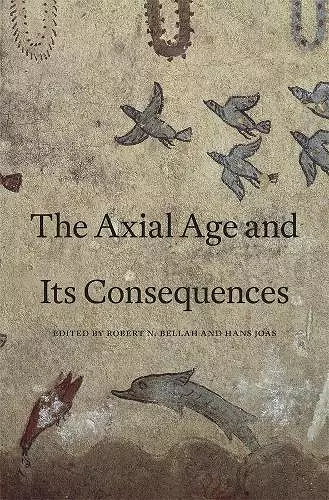The Axial Age and Its Consequences
Hans Joas editor Robert N Bellah editor
Format:Hardback
Publisher:Harvard University Press
Published:30th Nov '12
Currently unavailable, our supplier has not provided us a restock date

With eighteen leading multidisciplinary scholars, this volume covers enormous ground in the transformative beginnings for civilizations that shared cultural origins in the mid-first millennium BC in Europe and Asia. Extending the insight of existential philosopher Karl Jaspers regarding the 'Axial Age' and its later evolution to 'multiple modernities,' The Axial Age and Its Consequences, superbly edited by Hans Joas and Robert Bellah, is a must-read for contemporary comparative-historical sociological analyses in our own global age. -- Edward A. Tiryakian, author of For Durkheim: Essays in Historical and Cultural Sociology The Axial Age, the epic moment around the 6th century BCE which saw the intellectual outburst that engendered the major world religions, has enjoyed an upsurge of scholarly attention in the past generation. Great themes demand great voices, and editors Bellah and Joas have assembled a remarkable choral ensemble for a score organized to address fundamental questions about Axiality and its comparative manifestations, destructive possibilities, current status, and implications for the future. I can think of no compendium in the past generation that measures up to the quality and significance of this volume. -- Donald Levine, University of Chicago
This book makes the bold claim that intellectual sophistication was born worldwide during the middle centuries of the first millennium bce. From Axial Age thinkers we inherited a sense of the world as a place not just to experience but to investigate, envision, and alter. A variety of utopian visions emerged and led to both reform and repression.
The first classics in human history—the early works of literature, philosophy, and theology to which we have returned throughout the ages—appeared in the middle centuries of the first millennium bce. The canonical texts of the Hebrew scriptures, the philosophical writings of Plato and Aristotle, the Analects of Confucius and the Daodejing, the Bhagavad Gita and the teachings of the Buddha—all of these works came down to us from the compressed period of history that Karl Jaspers memorably named the Axial Age.
In The Axial Age and Its Consequences, Robert Bellah and Hans Joas make the bold claim that intellectual sophistication itself was born worldwide during this critical time. Across Eurasia, a new self-reflective attitude toward human existence emerged, and with it an awakening to the concept of transcendence. From Axial Age thinkers we inherited a sense of the world as a place not just to experience but to investigate, envision, and alter through human thought and action.
Bellah and Joas have assembled diverse scholars to guide us through this astonishing efflorescence of religious and philosophical creativity. As they explore the varieties of theorizing that arose during the period, they consider how these in turn led to utopian visions that brought with them the possibility of both societal reform and repression. The roots of our continuing discourse on religion, secularization, inequality, education, and the environment all lie in Axial Age developments. Understanding this transitional era, the authors contend, is not just an academic project but a humanistic endeavor.
With eighteen leading multidisciplinary scholars, this volume covers enormous ground in the transformative beginnings for civilizations that shared cultural origins in the mid-first millennium BC in Europe and Asia. Extending the insight of existential philosopher Karl Jaspers regarding the 'Axial Age' and its later evolution to 'multiple modernities,' The Axial Age and Its Consequences, superbly edited by Hans Joas and Robert Bellah, is a must-read for contemporary comparative-historical sociological analyses in our own global age. -- Edward A. Tiryakian, author of For Durkheim: Essays in Historical and Cultural Sociology
The Axial Age, the epic moment around the 6th century BCE which saw the intellectual outburst that engendered the major world religions, has enjoyed an upsurge of scholarly attention in the past generation. Great themes demand great voices, and editors Bellah and Joas have assembled a remarkable choral ensemble for a score organized to address fundamental questions about Axiality and its comparative manifestations, destructive possibilities, current status, and implications for the future. I can think of no compendium in the past generation that measures up to the quality and significance of this volume. -- Donald Levine, University of Chicago
Highly recommended for readers of Bellah's Religion in Human Evolution and students of religious philosophy and evolutionary sociology. -- Brian Odom * Library Journal *
ISBN: 9780674066496
Dimensions: unknown
Weight: unknown
560 pages